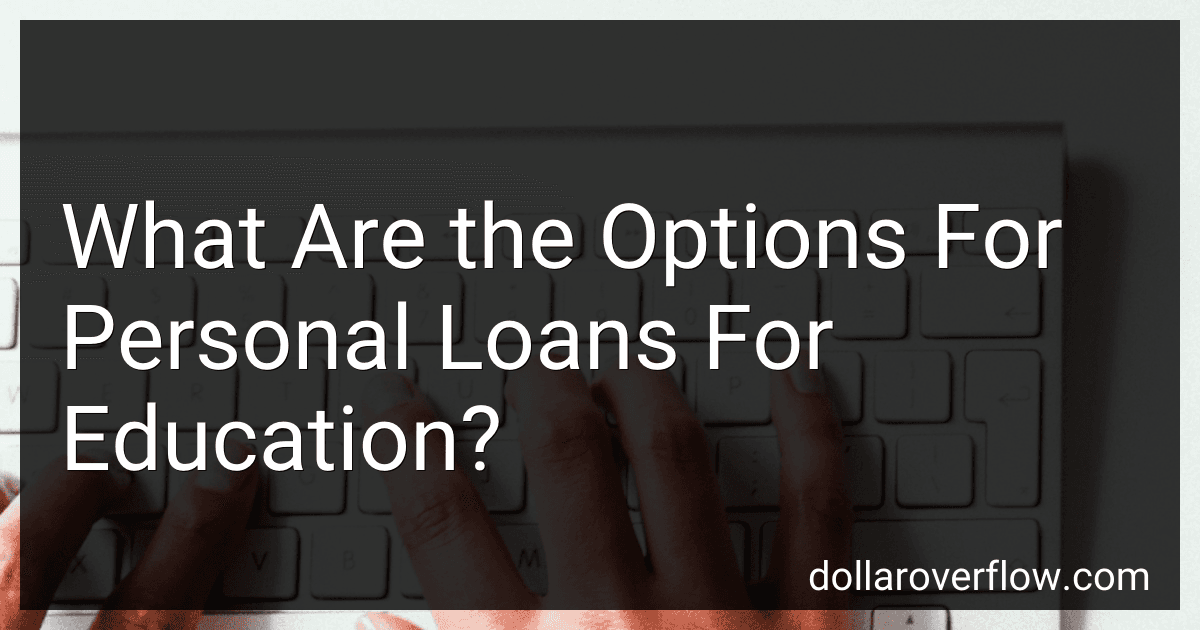There are several options for personal loans that can be used for education expenses. One option is to take out a traditional personal loan from a bank or credit union. These loans typically have fixed interest rates and repayment terms, and may require a good credit score to qualify.
Another option is to apply for a student loan from a private lender. These loans are specifically designed for education expenses and may have more flexible repayment terms than traditional personal loans. However, they may also have higher interest rates and stricter eligibility requirements.
Some online lenders also offer personal loans that can be used for education expenses. These loans may have varying interest rates and repayment terms, so it's important to compare options and choose a loan that best fits your needs.
Additionally, some employers offer tuition reimbursement programs or education assistance benefits that can help offset the cost of education expenses without the need for a personal loan. It's worth exploring all available options before deciding on a personal loan for education.
What is the minimum credit score required for personal loans for education?
The minimum credit score required for personal loans for education can vary depending on the lender. However, in general, a credit score of at least 600 or higher is typically recommended to qualify for a personal loan for education. Some lenders may have higher credit score requirements, while others may be more lenient. It's important to shop around and compare rates and terms from multiple lenders to find the best loan option for your needs.
What are the repayment terms for personal loans for education?
Repayment terms for personal loans for education vary depending on the lender, loan amount, and other factors. Some common repayment terms for personal loans for education include:
- Fixed monthly payments: Borrowers make a fixed monthly payment over a set period of time, typically between 1 to 10 years.
- Interest-only payments: Borrowers only pay the interest on the loan for a certain period, usually during the time they are in school, and then start making principal and interest payments after that.
- Deferred repayment: Borrowers do not have to make any payments on the loan until a certain period after they graduate or leave school. Interest continues to accrue during this time.
- Income-based repayment: Borrowers make monthly payments based on their income level, with payments adjusted as their income changes.
It is important to carefully review and understand the repayment terms of any personal loan for education before borrowing to ensure it fits within your budget and financial goals.
What is the grace period for repayment on personal loans for education?
The grace period for repayment on personal loans for education can vary depending on the lender and the terms of the loan agreement. Typically, the grace period is the period of time after graduation or leaving school when a borrower is not required to make payments on their loan. This period can range from 6 months to 12 months, but some lenders also offer longer grace periods. It is important to carefully review the terms of the loan agreement to understand the specific grace period for repayment.
